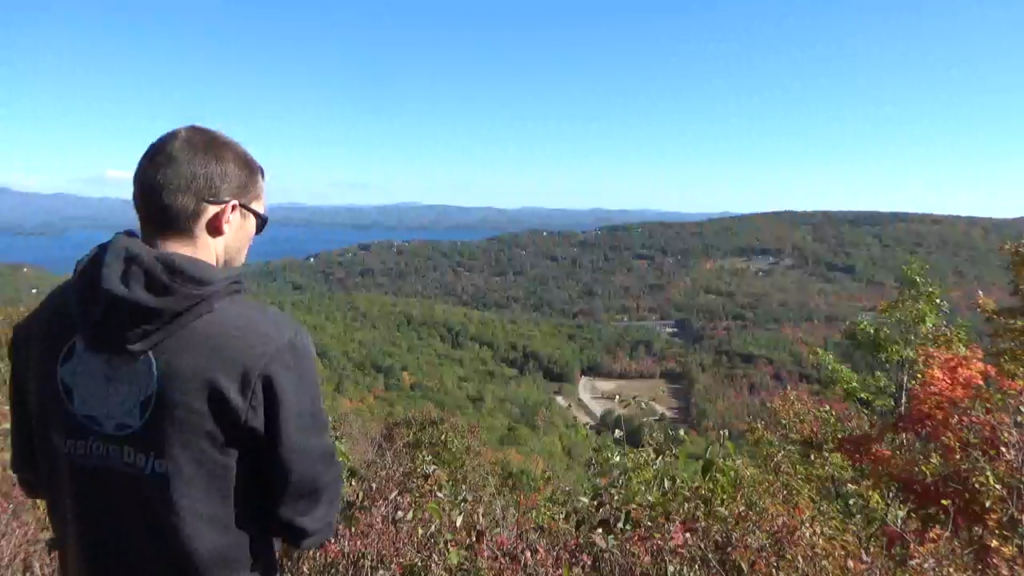Adapting To Fitness Challenges
Don't miss an opportunity because you had a plan!
Don't Be Afraid To Change Your Plans
The picture (either to the right or below) is of me looking at a view I discovered the day I set out to record "The Fitness Journey" videos.
I had a plan. I worked and played at Gunstock Mountain Resort for almost a decade so I knew my way around pretty well. I knew the path I would take up. Where I would stop to record. Even, how long it would take me for the round trip.
But, on my way up a familiar trail, I found a new path. Someone who hikes the mountain weekly had taken the time to cut and mark a trail that I had not seen before. I took it and it was more than worth the change to my plans for the day.
Thank You Steve!
Deviate From The Plan

This advice, taken to the extreme, can be detrimental, but when done with care, can lead to great rewards.
Whatever your plan was, it was made for a reason. So, before you deviate you have to question.
What are the possible setbacks that this could create?
Is the possible reward worth risking those setbacks?
After you ask yourself these questions you can decide if it is time to deviate or not. Some of us will be quick to say "no this is not worth it" and others (like myself) will be too quick to say "hell yeah, the setback won't happen anyway"
The first group will say no to amazing chances for amazing rewards and the second will expose themselves to crazy losses.
This is why you need to Know Your Risk Assessment.
Know Your Risk Assessment
The Pain vs The Gain
Every decision you make is a small risk assessment. You are deciding if the possible pain is worth the possible gain.
You just don't think about them this way because they are usually obvious and the risk is low.
Deciding what to eat? In most cases the wrong choice just means a bad meal or extra weight down the road.
As a snowboarder, rock climber, and martial artist the risk involved is often higher and is brought to the forefront of my decision making process.
Should I climb that route? My risk of falling is "X". When I fall, I might hit "Y". The rock is "Z" level of stabile.

When you are deciding whether or not to deviate from the plan you should be considering all the possible outcomes.
Even the bad ones.
My mother (who will read this) is going to feel a little nauseous about what I say next. Just because the risk of falling is high, the fall is not clear, or the rock is less than stabile, does not mean I won't decide to climb it anyway.
We look at the bad and the good so we make an informed decision, not because we only want to make the 100% safe decisions.
You can learn more about this in the Pain v Gain article
Have A Short Memory

I often say "forgive your failures". To an extent you also need to forget your failures.
When you fail, that failure should be a learning experience. It should tell you what you did well, where you messed up, and how to do better next time.
All too often people use a failure as proof that they are not capable.
This is why we need to forget those failures.
If you focus too hard on the failure after you figure out what was done right and how it can be improved, you will soon find it holding you back.
Conclusion
You should never be so rigid in a plan that you are afraid to deviate. Deviation leads to great strides forward and whole new worlds that you didn't know existed.
Deviation can also detract from those great strides you were already making so you need to know and understand your risk assessment, before you make the decision.
Failure is bound to happen so not only do you need to forgive yourself when it comes but you also need to learn from them and then forget about them.
Deviate From The Plan and Find Out What You Will Discover

